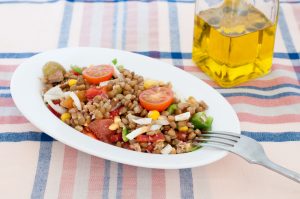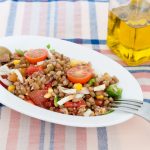Introduction: The Secret to Vibrant Living
When it comes to building a healthier body, the foundation lies in what you eat. Nutrient dense foods are those rich in vitamins, minerals, and essential nutrients while being relatively low in calories. These foods fuel the body efficiently, support metabolism, and strengthen immunity. In contrast to empty-calorie foods, nutrient dense foods promote long-term vitality and disease prevention.
Nutrient density measures how many beneficial nutrients a food provides compared to its calorie content. Foods like kale, eggs, salmon, and berries deliver high levels of vitamins, antioxidants, and proteins that your body can use immediately for repair and energy. Let’s explore 11 nutrient dense foods that can transform your health from the inside out.
1. Kale: The Green Powerhouse
Kale tops the list of nutrient dense foods because of its incredible profile. It’s loaded with vitamins A, C, and K, along with calcium and antioxidants like lutein and zeaxanthin that promote eye health. A single cup of kale provides over 600% of your daily vitamin K needs.
Tip: Steam or sauté kale lightly to increase its digestibility and nutrient absorption.
2. Salmon: Omega-3 Champion
Wild-caught salmon is one of the best sources of omega-3 fatty acids, which are essential for brain and heart health. It also contains B vitamins, selenium, and high-quality protein. Regularly eating salmon reduces inflammation, supports mental clarity, and maintains strong muscles.
Pair it with: Roasted vegetables for a perfectly balanced, nutrient dense meal.
3. Eggs: Nature’s Multivitamin
Often called nature’s multivitamin, eggs contain nearly every nutrient the body needs in small amounts. They are rich in choline for brain health and contain high-quality protein with all nine essential amino acids. Contrary to old myths, moderate egg consumption supports heart health thanks to HDL cholesterol benefits.
Fun fact: The yolk holds most of the nutrients—so don’t skip it!
4. Blueberries: Antioxidant-Rich Gems
Blueberries are tiny but mighty. They are packed with antioxidants such as anthocyanins, which fight oxidative stress and aging. These nutrient dense foods also improve brain function and support cardiovascular health.
Pro tip: Add a handful to your morning oats or smoothies for a daily antioxidant boost.
5. Liver: The Ultimate Superfood
Liver, especially beef or chicken liver, is one of the most nutrient dense foods on the planet. It’s rich in vitamin A, iron, folate, and B12—key nutrients for energy and red blood cell production. Just a small portion provides several times the daily value of essential vitamins.
Tip: Choose grass-fed liver and consume in moderation once or twice a week for optimal benefits.
6. Sweet Potatoes: Beta-Carotene Boosters
Sweet potatoes are colorful sources of beta-carotene, which the body converts into vitamin A. They are also rich in fiber, vitamin C, potassium, and manganese. These nutrient dense foods stabilize blood sugar levels and support gut health.
Serving idea: Bake or mash with olive oil and cinnamon for a deliciously nutritious side.
7. Greek Yogurt: Protein and Probiotics
Greek yogurt provides an excellent combination of protein, calcium, and probiotics. These beneficial bacteria aid digestion and strengthen the immune system. Compared to regular yogurt, Greek yogurt offers nearly twice the protein content, making it one of the best nutrient dense foods for muscle maintenance.
Pro tip: Choose plain, unsweetened versions to avoid added sugars.
8. Quinoa: The Ancient Complete Protein
Quinoa stands out as a plant-based complete protein containing all nine essential amino acids. It’s also rich in magnesium, iron, and fiber. These nutrient dense foods are gluten-free, making quinoa an excellent alternative to refined grains.
Tip: Mix cooked quinoa with roasted vegetables and olive oil for a hearty, nutrient-packed meal.
9. Broccoli: The Cruciferous Defender
Broccoli is celebrated for its powerful combination of vitamins C and K, fiber, and cancer-fighting compounds like sulforaphane. It supports detoxification and strengthens immunity while promoting bone health.
Cooking tip: Lightly steam broccoli instead of boiling to preserve its nutrients.
10. Almonds: Healthy Fats and Micronutrients
Almonds are nutrient dense foods rich in vitamin E, magnesium, and monounsaturated fats that protect heart health. They also provide protein and fiber, making them an excellent snack for sustained energy.
Serving idea: Eat a small handful daily or blend into nut butter for versatility.
11. Spinach: Iron-Rich and Versatile
Spinach is a leafy green powerhouse, abundant in iron, folate, and magnesium. It’s also high in plant-based nitrates that improve blood flow and cardiovascular performance. As one of the most nutrient dense foods, spinach helps combat fatigue and promotes energy balance.
Pro tip: Combine spinach with vitamin C–rich foods like oranges to enhance iron absorption.
The Science Behind Nutrient Density
Nutrient dense foods aren’t just about calories—they deliver a concentrated source of essential compounds your body can use efficiently. Research consistently links nutrient dense diets with lower risks of chronic diseases such as diabetes, obesity, and heart disease.
A study published in the American Journal of Clinical Nutrition found that diets emphasizing nutrient density led to longer lifespans and improved overall metabolic health. The key lies in choosing foods that provide more nutrients per calorie rather than simply reducing calorie intake.
How to Incorporate Nutrient Dense Foods Daily
-
Start your morning with Greek yogurt topped with blueberries.
-
Make lunch vibrant with kale or spinach salads paired with quinoa and salmon.
-
Snack smartly with a handful of almonds or boiled eggs.
-
Choose colorful dinners featuring sweet potatoes and broccoli.
-
Stay hydrated with green smoothies made from kale and spinach.
Creating meals around nutrient dense foods improves not only physical health but also mental clarity and emotional balance.
Nutrient Density vs. Calorie Density
Calorie-dense foods, such as fried items and sugary snacks, deliver lots of energy but few nutrients. Nutrient dense foods, by contrast, provide maximum nourishment with minimal calories. For example:
-
Avocado vs. French fries: Both contain fats, but avocados supply fiber, potassium, and heart-healthy monounsaturated fats.
-
Grilled salmon vs. fried chicken: Salmon offers omega-3s and vitamin D, while fried chicken adds unhealthy trans fats.
Making smart swaps like these ensures your body thrives, not just survives.
The Benefits of Nutrient Dense Eating
Embracing nutrient dense foods supports:
-
Longevity: Nutrients like antioxidants slow cellular aging.
-
Energy efficiency: Balanced vitamins and minerals enhance metabolism.
-
Disease prevention: Strengthens immunity and lowers inflammation.
-
Weight management: Satisfying meals reduce overeating tendencies.
-
Mental clarity: Essential fatty acids support brain health and focus.
These foods don’t just fill you up—they nourish you on every level.
Challenges and Tips
While nutrient dense foods are ideal, access and cost can be barriers. Here are ways to overcome them:
-
Buy frozen: Frozen fruits and vegetables retain most nutrients.
-
Shop in season: Seasonal produce is fresher and more affordable.
-
Plan ahead: Meal prep reduces waste and encourages consistent healthy eating.
-
Grow your own: Herbs and greens are easy to cultivate at home.
Even small steps toward incorporating more nutrient dense foods can yield lasting benefits.
Conclusion: Nourish, Thrive, and Sustain
Adopting a diet rich in nutrient dense foods means making a conscious choice for long-term vitality. These 11 powerful foods—ranging from kale to salmon and blueberries—deliver the essential building blocks for physical strength, mental clarity, and emotional balance.
The beauty of nutrient dense eating lies in its simplicity: real, whole foods that naturally align with your body’s needs. Start with one substitution today, and you’ll soon feel the transformation from the inside out.








